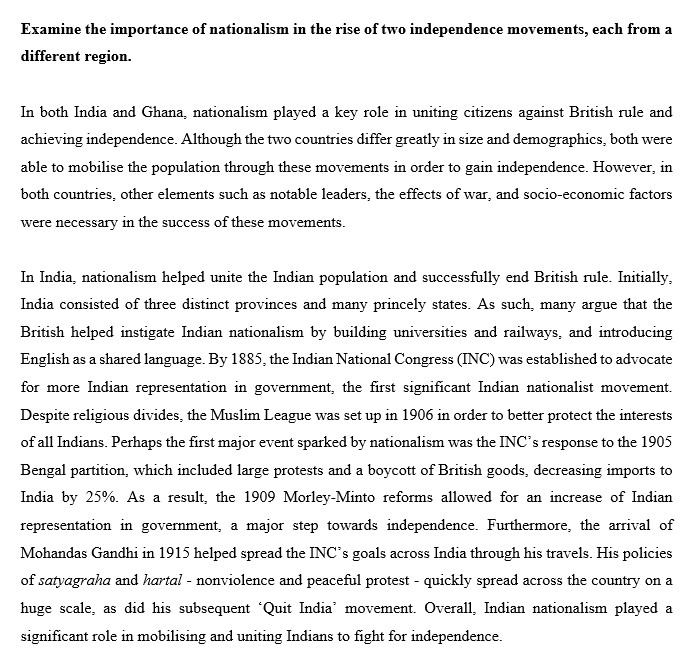IB History Paper on Nationalism and Independence in India and Ghana
Summary:
This note is about Nationalism and Independence in India and Ghana. Nationalism played a crucial role in the independence movements of India and Ghana. In India, nationalism helped unite the population against British rule, leading to significant events such as protests and the arrival of Mohandas Gandhi, which ultimately helped secure independence. In Ghana, access to education and the idea of pan-Africanism fueled nationalist sentiment, and the United Gold Coast Convention and Convention’s People Party were crucial in achieving independence. However, other factors such as war, socio-economic issues, and notable leaders also played important roles in both countries’ successful independence movements.
Excerpt:
Nationalism and Independence in India and Ghana
In both India and Ghana, nationalism played a key role in uniting citizens against British rule and achieving independence. Although the two countries differ greatly in size and demographics, both were able to mobilise the population through these movements in order to gain independence. However, in both countries, other elements, such as notable leaders, the effects of war, and socio-economic factors, were necessary for the success of these movements.
In India, nationalism helped unite the Indian population and successfully end British rule. Initially, India consisted of three distinct provinces and many princely states. As such, many argue that the British helped instigate Indian nationalism by building universities and railways and introducing English as a shared language. By 1885, the Indian National Congress (INC) was established to advocate for more Indian representation in government, the first significant Indian nationalist movement. Despite religious divides, the Muslim League was set up in 1906 in order to better protect the interests of all Indians. Perhaps the first major event sparked by nationalism was the INC’s response to the 1905 Bengal partition, which included large protests and a boycott of British goods, decreasing imports to India by 25%. As a result, the 1909 Morley-Minto reforms allowed for an increase in Indian representation in government, a major step towards independence. Furthermore, the arrival of Mohandas Gandhi in 1915 helped spread the INC’s goals across India through his travels.


Reviews